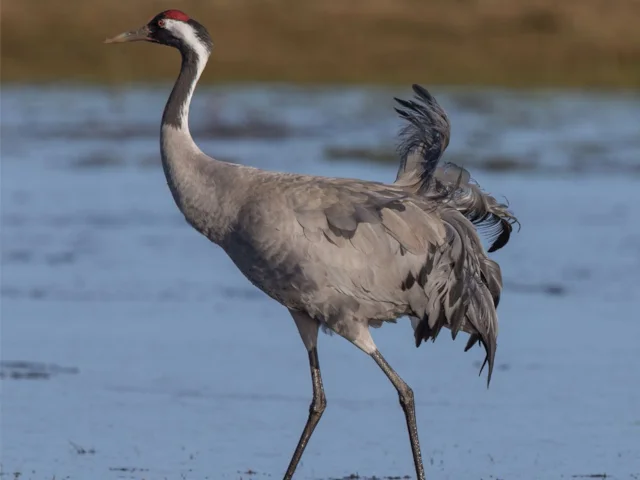Europe’s nature laws "fit for purpose"
36e15173-21a1-46fd-9a45-ded586d24349

The European Commission's review of key European nature laws has shown they deliver far more benefits than they cost.
A study carried out by international experts for the Commission has published its initial findings of the Fitness Check, or ‘REFIT’, process on the Birds and Habitats Directives. It is feared that the laws, also known as the Nature Directives, could be re-opened, merged or weakened as part of President Jean Claude Juncker and vice-President Timmermans’ drive for ‘better regulation’. But the evaluation study compiled by a panel of technical experts has found no reason for merging the directives, and says they are also coherent with other EU policies and laws.
Further, it spells out the huge benefits provided by the laws when compared with how much they cost. The Natura 2000 network of protected areas, which the laws are responsible for, costs an estimated €5.8 billion per year, but generates benefits in ecosystem services running to €200-300 billion per year and a further €50-85 billion per year for local economies. Overall, the directives make positive contributions to sustainable development and allow economic development which is compatible with maintaining biodiversity.
Ariel Brunner, BirdLife Europe Senior Head of Policy, said: “The Fitness Check evidence is crystal clear: the Birds and Habitat Directives are fit for purpose and there is no case for ‘merging and modernising’ them. The evidence also clearly shows where the real problems lie: poor and uneven enforcement, lack of funding and the impact of perverse policies such as the Common Agricultural Policy.”
While the evidence gives no support whatsoever for a need to 'merge and modernise' the directives, it highlights how enforcement must be strengthened, and for EU policies that are still driving biodiversity loss to be dealt with.
Today’s publications come just a week ahead of a crucial event on the Fitness Check process. Conservationists, politicians and representatives of the EU institutions will come together on Friday 20 November for a conference on the Nature Directives in Brussels, hosted by EU Environment Commissioner, Karmenu Vella.
A study carried out by international experts for the Commission has published its initial findings of the Fitness Check, or ‘REFIT’, process on the Birds and Habitats Directives. It is feared that the laws, also known as the Nature Directives, could be re-opened, merged or weakened as part of President Jean Claude Juncker and vice-President Timmermans’ drive for ‘better regulation’. But the evaluation study compiled by a panel of technical experts has found no reason for merging the directives, and says they are also coherent with other EU policies and laws.
Further, it spells out the huge benefits provided by the laws when compared with how much they cost. The Natura 2000 network of protected areas, which the laws are responsible for, costs an estimated €5.8 billion per year, but generates benefits in ecosystem services running to €200-300 billion per year and a further €50-85 billion per year for local economies. Overall, the directives make positive contributions to sustainable development and allow economic development which is compatible with maintaining biodiversity.
Ariel Brunner, BirdLife Europe Senior Head of Policy, said: “The Fitness Check evidence is crystal clear: the Birds and Habitat Directives are fit for purpose and there is no case for ‘merging and modernising’ them. The evidence also clearly shows where the real problems lie: poor and uneven enforcement, lack of funding and the impact of perverse policies such as the Common Agricultural Policy.”
While the evidence gives no support whatsoever for a need to 'merge and modernise' the directives, it highlights how enforcement must be strengthened, and for EU policies that are still driving biodiversity loss to be dealt with.
Today’s publications come just a week ahead of a crucial event on the Fitness Check process. Conservationists, politicians and representatives of the EU institutions will come together on Friday 20 November for a conference on the Nature Directives in Brussels, hosted by EU Environment Commissioner, Karmenu Vella.

